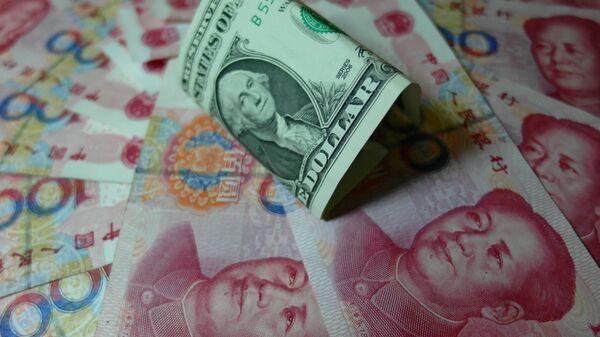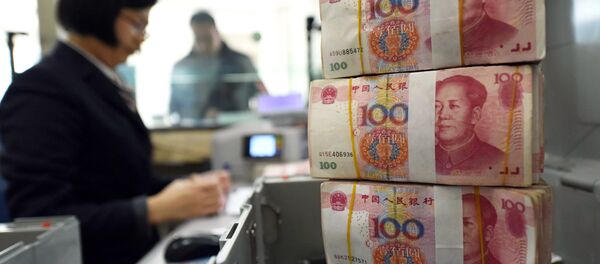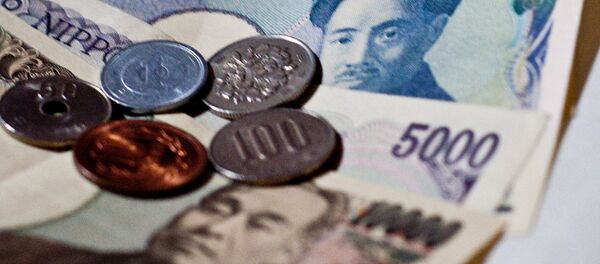The yuan's value has fallen by more than 1.5 percent since the end of September, although the currency recovered slightly on Tuesday, trading at 6.78 to the dollar.
Last week the Chinese People's Daily rebutted speculation that the devaluation of its currency is a result of official policy, and attributed the slide to outside factors.
The newspaper pointed to expectations of an interest rate rise by the US Federal Reserve and volatility of other currencies such as the British pound which has led to a higher dollar index. In addition, restrictive measures adopted in some Chinese cities have caused some funds to flee from the housing market to dollars, according to China Daily.
Igor Klyushev of Freedom Finance told the Russian newspaper Vzglyad that while the devaluation is similar in scale to that which shook the financial markets in January this year, this time it has not had the same effect.
"At the end of last week the US dollar relative to the yuan had again reached the maximum it reached on January 6 this year. Then, the devaluation took place very quickly, leading to a correction on all the global markets. Now, a far more gradual reduction in the exchange rate is not frightening anybody – the US market is near all-time highs, and the European – close to an annual high," Klyushev said.
However, vice-president of IFC Financial Center Stanislav Verner told the Russian newspaper Regnum on Monday that the Chinese authorities may well decide against currency interventions in order to save foreign currency reserves, which have declined in recent years.
"The subsequent sharp decline will cause a shock on the markets and bring the possibility of serving foreign debts into question. This could cause a panicked outflow of capital and burst the bubble on the housing market, which threatens serious consequences," Verner warned.
On Tuesday Renaissance Research highlighted the risks to large banks, in particular Citibank, which has the largest proportion of revenues from Asian operations among global investment banks and is particularly exposed to risks from US-dollar denominated debt taken on by Chinese corporations.
"Should Chinese policymakers devalue the yuan further, up to 50 percent of Citigroup's revenues could come under pressure," the analyst warned.
Elena Shishkina of Zurich Capital Management told Vzglyad that at the moment, China is allowing the currency to weaken in order to send a message to the US Federal Reserve.
"Since the majority of experts are inclined to believe that the Fed will raise interest rates in December, China is gradually weakening the yuan in advance, in order to show that a sharp change in monetary policy of the Federal Reserve is undesirable," Shishkina explained.





